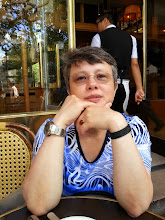"Life and Nothing But", by Bertrand Tavernier, 1989, DVD Studio Canal 2001
Bertrand Tavernier's "Life and Nothing But" (1989) is a French movie about the absurdity and suffering of WWI. It depicts the story of Major Dellaplane (Philippe Noiret), an obsessive and deeply committed superior officer, whose task is to try to match up the 350,000 dead soldiers with the missing from families' description. His path will cross that of two very different women; the Parisian aristocrat Irène de Courtil (Sabine Azéma) and Alice (Pascale Vignal), a provincial schoolteacher. Post WWI France is a country in economical and political recession, in dire need of healing and reconciliation. Dellaplane's mission (to put names on faces) carried out with zeal and obsession, will soon conflict with the more pragmatic interests of the politicians, the industrialists and oddly enough to that of the army. Tavernier's reputation for political statements and for being l'homme en colère (the angry man), is brilliantly translated in Dellaplane's resilience against oblivion, and the way with which human life has been tragically devalued during the war. Yet, Dellaplane is not the hero of this movie, and his mission - despite his relentless commitment - only makes sense in a collective structure.
“Life and Nothing But”, is a teamwork (Jean Cosmos co-signed the screenplay), intended to celebrate life through a thorough denunciation of the hypocrisy and profit-driven mentality of post WWI France. Tavernier's choice of using long-shots (only one close-up of Dellaplane, at the end of the movie) to induce a sense of community, is consistent with Dellaplane's quest for a collective sense of justice and decency. When Dellaplane meets with Irène, his first reaction is irritation, as she does not seem to understand the importance of his task. He told Irène that he will "devote exactly one 350,000th of his stunning incompetence" to help her locate her missing husband. Dellaplane's struggle between his enormous task and his attraction to Irène is well reflected in Tavernier's use of wide-angle lenses that create a sense of spatial relationship, over that of intimacy. Yet, there is a sense of nascent intimacy between Dellaplane and Irène, an overwhelming feeling of love and desire, to which he first did not respond very well, "J'étais en panne de tout", (I ran out of everything), he said to his commanding officer, after his first and only private encounter with Irène.
“Life and Nothing But” won the BAFTA Film Award as well as the Cesar for Best Actor (Philippe Noiret) and best film score (Oswald d'Andrea). Overall, "Life and Nothing But" is not a grim movie, despite its subject matter. My strongest critic is that I found it rather difficult to relate to the main characters, precisely because of Tavernier's emphasis on the community rather than on the individual. On the bright side, I must say that I liked the scenario and the way Tavernier's mind works. As far as I know, he succeeded in capturing the social and cultural landscape of post WWI France. A special mention to the very last part of the movie, when Dellaplane now retired from the army, reads out loud the love letter he sent to Irène, now living in New York. It has the royauté dérisoire (the derisory grandeur) of a true gentleman. This DVD edition is in French, with English subtitles and offers an interview with Bertrand Tavernier and Jean Cosmos, scenes selection, filmographies and finally a stills section. For those who liked Philippe Noiret, this movie is a real treat. To him too, life and nothing but came first.













No comments:
Post a Comment